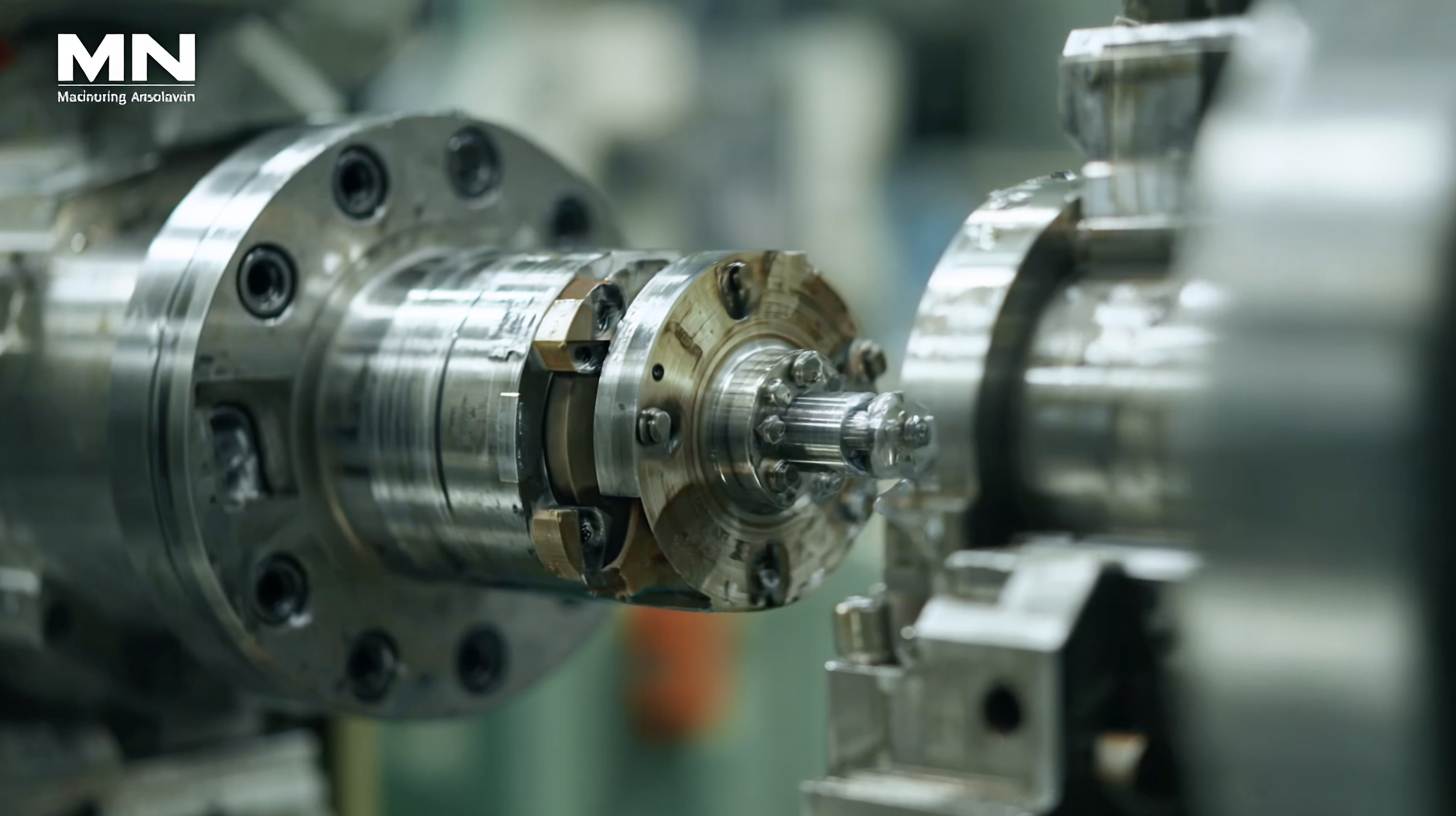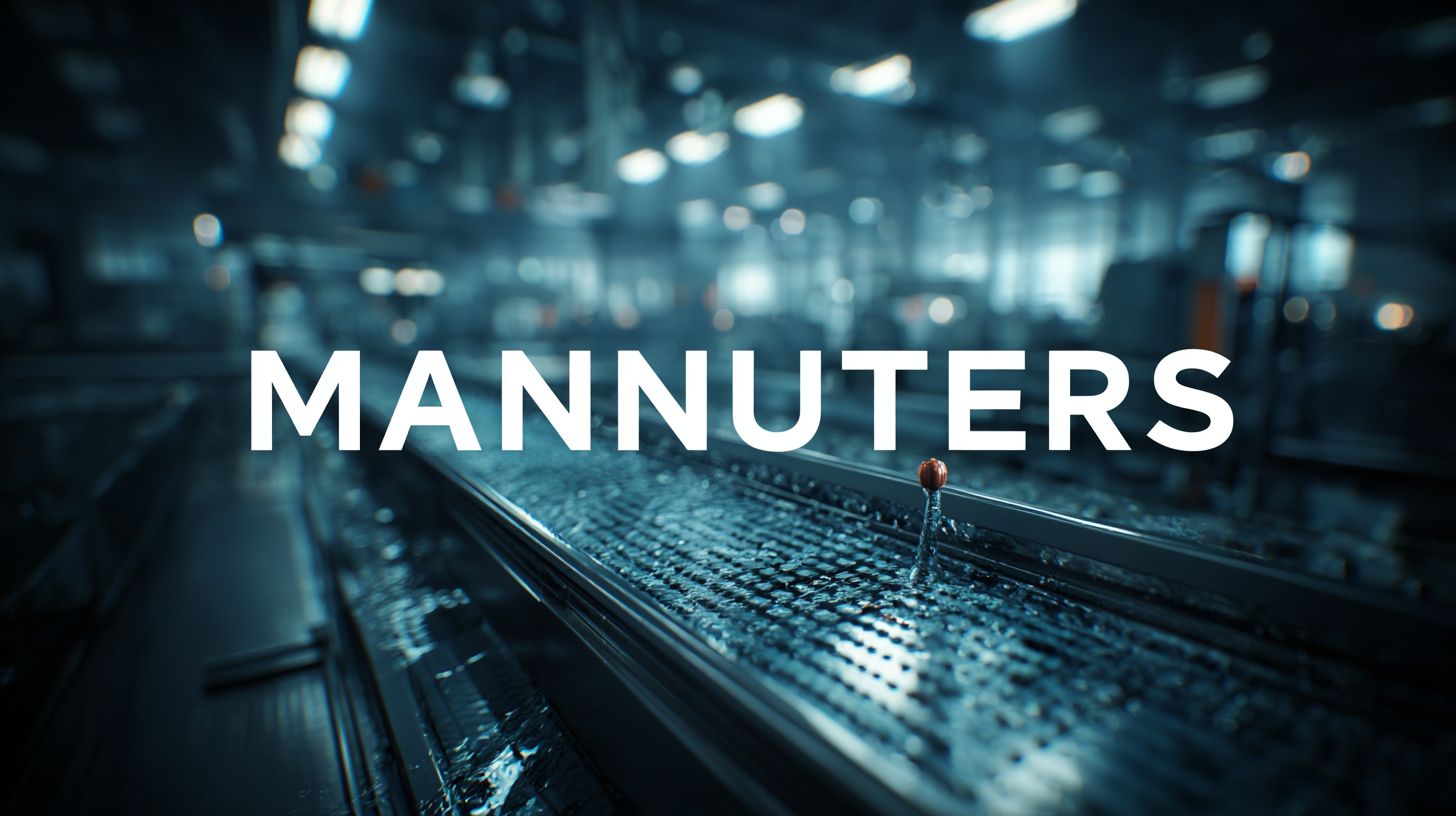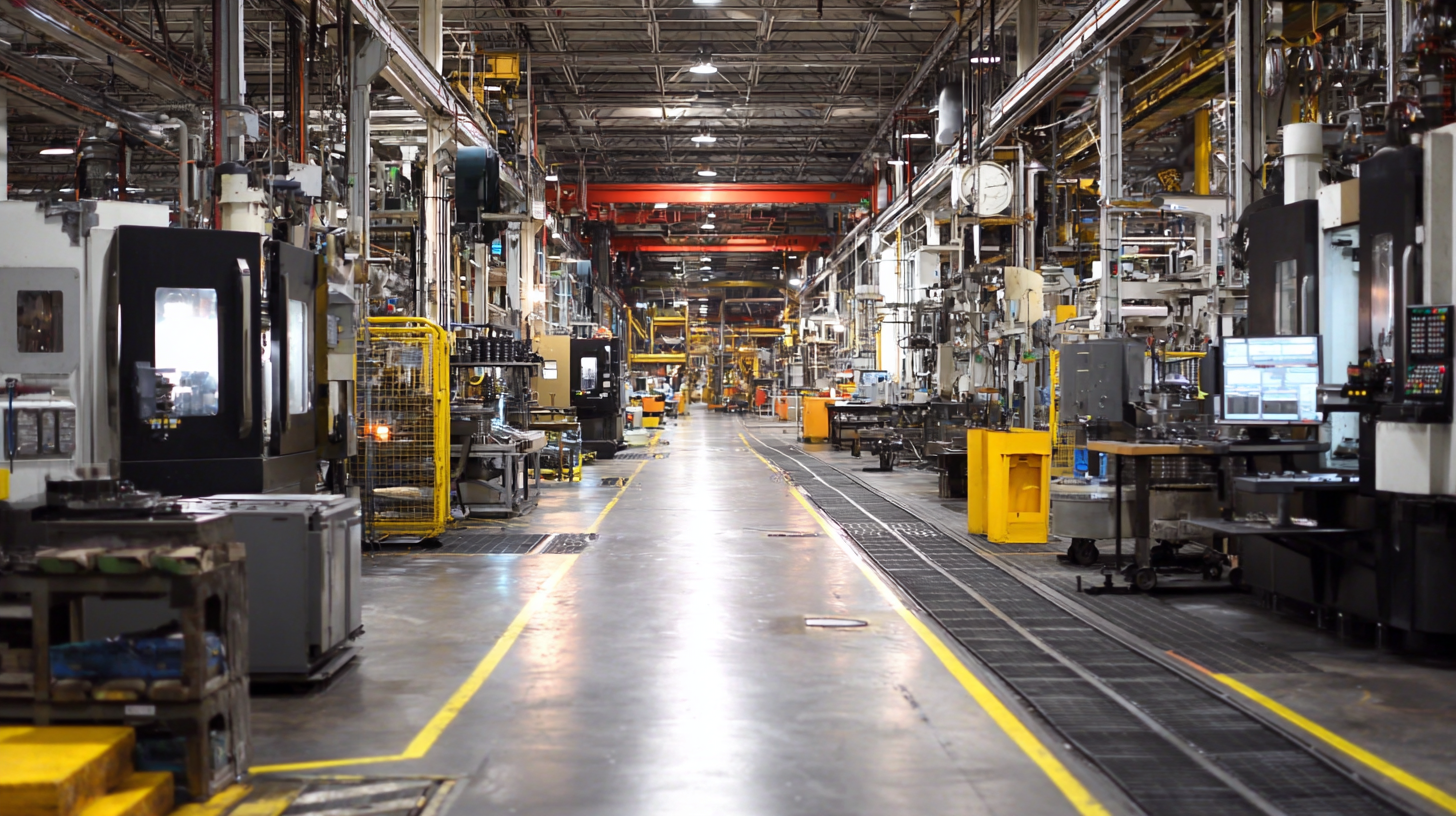
Exploring Industry Applications: How Best Manufacturers Solve Common Challenges
In today's rapidly evolving industrial landscape, manufacturers face a myriad of challenges, from supply chain disruption to the pressure of adhering to stringent industry standards. According to a recent report by McKinsey & Company, over 80% of manufacturers have experienced significant operational disruptions due to unforeseen global events, prompting a need for innovative solutions. This blog explores how leading manufacturers successfully navigate common challenges by implementing best practices and advanced technologies. By examining case studies and industry benchmarks, we reveal how these organizations enhance productivity, ensure compliance, and maintain competitive advantage, ultimately driving growth in a challenging environment. Join us as we delve into effective strategies and methodologies that define the success of modern manufacturers.

Best Practices in Manufacturing: Streamlining Production for Efficiency Gains
In the fast-paced world of manufacturing, streamlining production processes is paramount for achieving efficiency gains. According to a report by McKinsey, manufacturers that implement advanced production techniques can boost productivity by up to 30%. This statistic underscores the importance of embracing best practices that include automation and lean manufacturing principles. By reducing waste and optimizing workflows, manufacturers not only enhance output but also improve their bottom line.
One key tip for manufacturers is to invest in employee training. A study by the Manufacturing Institute found that engaging skilled workers can lead to a 20% increase in productivity. Empowering employees with the right tools and knowledge fosters a culture of continuous improvement, essential for adapting to ever-evolving industry demands.
Additionally, leveraging digital tools, such as IoT and AI, can significantly streamline operations. According to a report from Deloitte, manufacturers adopting these technologies can see efficiency improvements of up to 25%. Implementing real-time data analytics allows for better decision-making and proactive problem-solving, ensuring that production processes remain agile and responsive to market changes.
Leveraging IoT Technology: Enhancing Real-time Monitoring and Data Analysis
As industries evolve, the integration of Internet of Things (IoT) technology is transforming how manufacturers tackle common challenges such as inefficiency and lack of real-time insights. According to a recent report by McKinsey, over 60% of manufacturers that implement IoT solutions see improvements in operational efficiency due to enhanced data monitoring capabilities. This real-time monitoring facilitates immediate decision-making, allowing businesses to respond quickly to production issues, thereby minimizing downtime.
Moreover, the ability to leverage data analytics leads to more informed strategic planning. A study from PwC indicates that 48% of manufacturers believe IoT analytics will significantly contribute to their market competitiveness in the upcoming years. By harnessing machine learning algorithms and predictive analytics, manufacturers can foresee maintenance needs and optimize supply chain operations, ultimately driving cost savings and productivity. The future is clear: those who effectively adopt IoT technology will not only overcome traditional challenges but will also set new benchmarks in the manufacturing sector.
Exploring Industry Applications: How Best Manufacturers Solve Common Challenges - Leveraging IoT Technology: Enhancing Real-time Monitoring and Data Analysis
| Industry | Common Challenges | IoT Solutions Implemented | Benefits Realized | Real-time Monitoring Tools |
|---|---|---|---|---|
| Manufacturing | Equipment Downtime | Predictive Maintenance Sensors | Reduced Downtime, Increased Efficiency | Real-time Performance Dashboards |
| Logistics | Tracking Shipments | GPS Tracking Devices | Improved Delivery Times, Reduced Costs | Live Location Tracking Apps |
| Energy | Energy Consumption Monitoring | Smart Meters | Optimized Energy Usage, Cost Savings | Fault Detection Systems |
| Agriculture | Crop Health Monitoring | Soil and Weather Sensors | Increased Yield, Resource Efficiency | Automated Reporting Systems |
Addressing Labor Shortages: Automation Solutions Transforming the Workforce
In today’s manufacturing landscape, addressing labor shortages has become paramount for companies aiming to maintain productivity and competitiveness. As traditional labor pools shrink, manufacturers are increasingly turning to automation solutions to fill the gap. These technologies not only streamline operations but also enhance efficiency, allowing for a more flexible workforce. By incorporating robotics and automated systems, manufacturers can alleviate the pressures of high turnover rates and training costs, ultimately transforming the way work is conducted on the factory floor.
Automation is not just about replacing human labor; it is about augmenting capabilities and freeing workers to focus on higher-value tasks. Intelligent automation systems can handle repetitive, low-skilled jobs, thereby permitting employees to engage in more complex problem-solving and innovation-driven roles. This shift not only helps in overcoming labor shortages but also fosters a culture of continuous improvement. As manufacturers invest in these solutions, they create a more resilient operational model that can adapt to the evolving demands of the industry while ensuring that human expertise remains at the forefront.
Supply Chain Resilience: Strategies to Mitigate Disruptions in Manufacturing
In the modern manufacturing landscape, supply chain resilience has emerged as a critical priority for manufacturers aiming to navigate disruptions. The COVID-19 pandemic has highlighted vulnerabilities, prompting industry leaders to adopt strategies that enhance agility and adaptability. By diversifying suppliers and establishing strong relationships with multiple partners, manufacturers can minimize risks associated with dependency on a single source, ensuring a more robust supply chain.
Additionally, investing in advanced technologies such as artificial intelligence and blockchain can significantly improve transparency and traceability across the supply chain. These technologies enable manufacturers to anticipate potential disruptions and respond proactively, enhancing their ability to recover swiftly from unforeseen challenges. Furthermore, embracing a lean manufacturing philosophy allows companies to optimize their processes and reduce waste, thus increasing overall efficiency and resilience.
Finally, fostering a culture of collaboration both within the organization and with external stakeholders is essential for building a resilient supply chain. By sharing information, resources, and best practices, manufacturers can create a stronger, more cohesive network capable of withstanding disruptions. As the manufacturing sector continues to evolve, these strategies will be vital for ensuring sustainability and competitiveness in an unpredictable market.

Sustainable Manufacturing: Implementing Eco-friendly Practices for Long-term Success
 Sustainable manufacturing has emerged as a vital focal point for leading manufacturers who seek not only to improve their bottom line but also to contribute positively to the environment. Implementing eco-friendly practices requires a thorough understanding of the entire production process, from sourcing raw materials to waste management. Manufacturers are increasingly adopting renewable energy sources, optimizing resources to minimize waste, and rethinking their supply chains to incorporate more sustainable materials. These strategies not only reduce the ecological footprint but also align with the growing consumer demand for ethically produced goods.
Sustainable manufacturing has emerged as a vital focal point for leading manufacturers who seek not only to improve their bottom line but also to contribute positively to the environment. Implementing eco-friendly practices requires a thorough understanding of the entire production process, from sourcing raw materials to waste management. Manufacturers are increasingly adopting renewable energy sources, optimizing resources to minimize waste, and rethinking their supply chains to incorporate more sustainable materials. These strategies not only reduce the ecological footprint but also align with the growing consumer demand for ethically produced goods.
Moreover, the integration of sustainable practices fosters innovation within manufacturing operations. Embracing technologies such as automation and IoT can lead to smarter resource management and efficient production techniques. For instance, predictive maintenance can significantly reduce machinery downtime, leading to less resource consumption and less waste. By investing in sustainable practices, manufacturers are not only addressing immediate challenges but are also setting the foundation for long-term success, ensuring their relevance in an increasingly eco-conscious market landscape. This commitment to sustainability is not merely a trend but a necessary evolution in the manufacturing industry.
